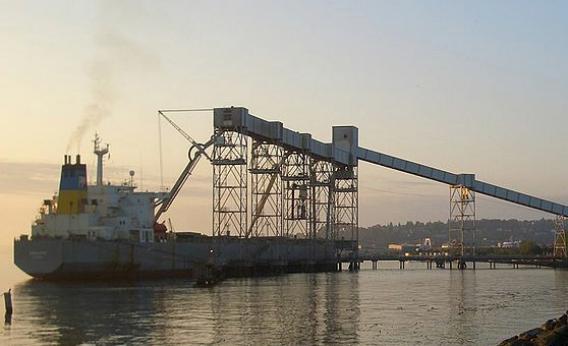We’ve all seen success stories in which cities have taken derelict dock areas and turned them into attractive waterfront views for human habitation. But the flipside of surging imports from Asia is surging port activity, and Will Doig has a fascinating look at the conflicts between working ports and fancy city-types that does, however, offer this one dissonent paragraph:
Longshoremen can easily make $150,000 a year, and the salaries of the Puget Sound pilots who bring in the big ships could make a Ph.D. candidate cry: $400,000 per year. “In the sports page today someone was talking about how great it would be to have the arena because it would bring in hotels and restaurants,” says Royer, “but if you look at the economics of the working waterfront, it’s not even close.”
Which raises an interesting point: A robust working waterfront inadvertently creates the conditions that make possible several of the values New Urbanists hold dear. With their generous salaries, maritime workers can afford to live in the city, rather than be forced out into the sprawl. And while ports have a grimy reputation, shipping is cleaner than trucking or even freight rail. “Every barge replaces 75 heavy trucks or 25 rail cars,” says Hughes. Today’s ships, says Royer, “can move one ton of cargo 1,600 miles on a gallon of fuel.”
But now why is it that you need to earn a six-figure salary to be able to afford to live in Seattle? The answer obviously is that demand is high and the supply is scarce. But this is important, because as long as the issue is supply constraints then even if every single person in the state of Washington were to miraculously see his income double there’d be no change in the quantity of people who can afford to live in the city. Instead what would happen is that homes in “sprawl” areas where housing prices are dominated by construction costs would get bigger, while prices in supply-constrained central city and inner suburb areas would just get more expensive. The result would be bad for the environment and a windfall for incumbent landowners. If you want to increase the number of people who can afford to live in the city, there’s nothing you can do with dockworker salaries or anyone else’s salaries. You need to increase the supply. I could write a short book about this. Closer to Doig’s core point, if residential areas were more densely developed there’d be less pressure to expand into the space needed by working ports.
